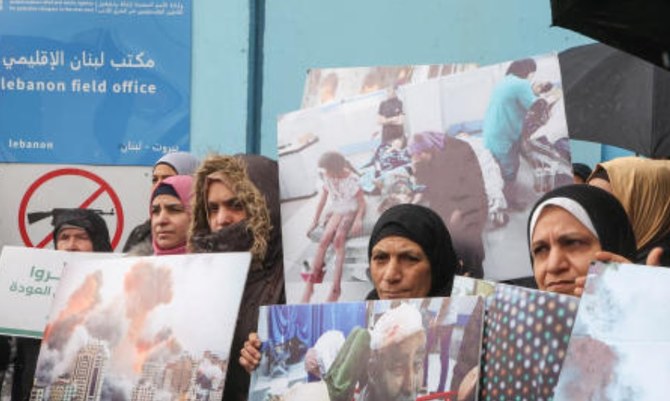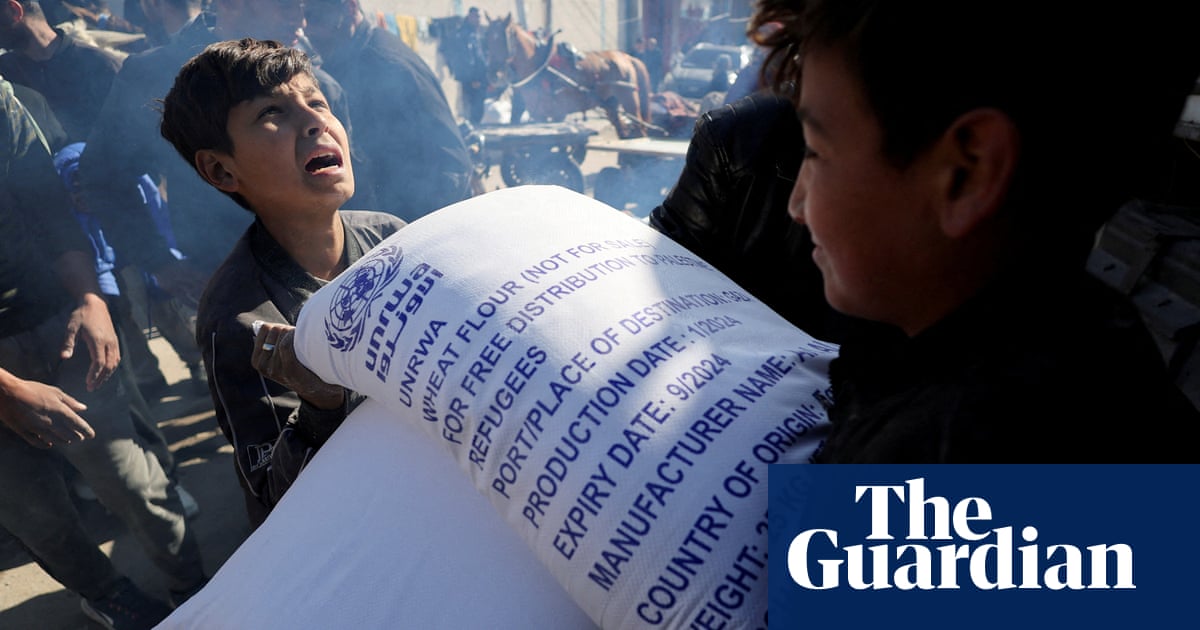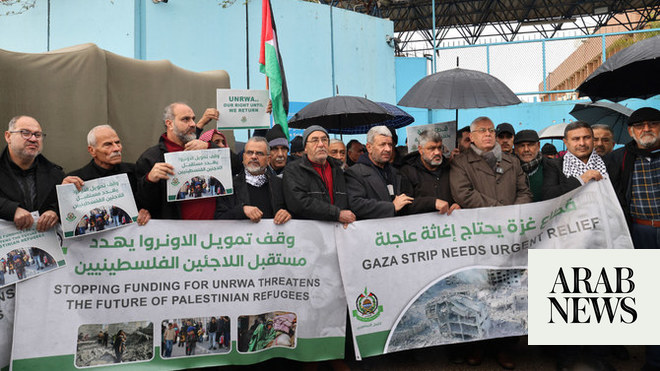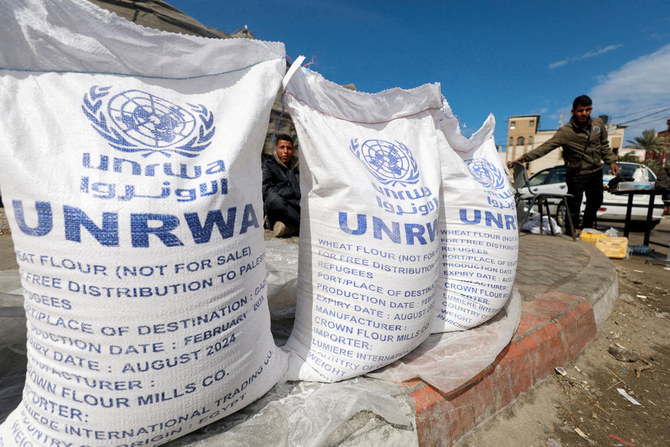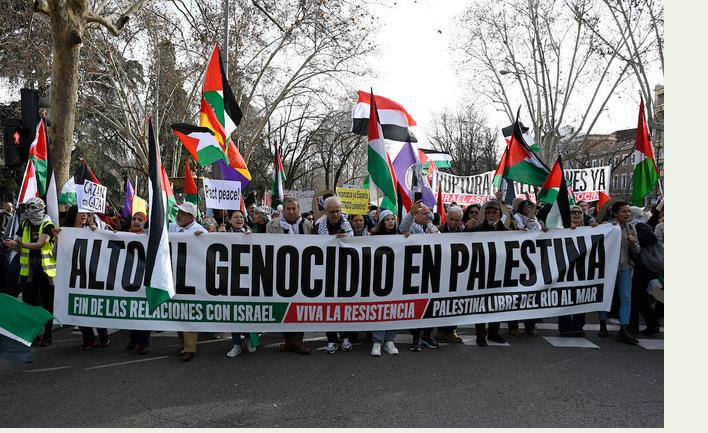
Seven former US ambassadors to the UN, who served under both Democratic and Republican presidents, this month sent a letter to Secretary of State Mike Pompeo asking that the US restore the funding it cut this year to UNRWA, the UN agency responsible for providing assistance to Palestinian refugees. The letter raised concerns about the humanitarian and security impacts of a severe gap in UNRWA funding.
In January, Washington announced that it was freezing $65 million of an initial planned tranche of $125 million in funds for the agency, providing only $60 million. The US — the largest single donor to UNRWA — typically provides more than $300 million a year, and it might freeze additional planned funds for 2018. This amounts to a huge budget shortfall for UNRWA. The State Department talked about a vague need for it to reform and for increased “burden sharing ,” calling on other countries to provide more funds. However, tweets by President Donald Trump and comments from other US officials made it clear that the cut in funding was punishment for Palestinian support for a UN resolution condemning Washington’s decision to move its embassy in Israel to Jerusalem, and for Palestinians refusing to accept the Trump administration’s terms for peace talks with Israel. Or, in Trump’s words, a lack of “appreciation or respect” from the Palestinians.
The decision represented another example of the Trump administration’s tit-for-tat approach to international relations. As the letter by the former ambassadors demonstrated, previous presidents saw UNRWA funding as a strategic investment that bolstered the security of important allies and provided Washington with influence within the agency and among Palestinians. The Trump administration, however, sees it as something to be provided in exchange for Palestinian acquiescence to US policy demands.
Some countries front-loaded their annual funds to temporarily help cover the funding shortfall, and a few countries have pledged to increase their support. However, other nations have not stepped up to fully cover the gap in US funding — a fairly predictable outcome. While Washington might still reverse course, UNRWA is facing the likelihood of very soon being forced to extensively cut the programs and jobs that provide essential services and support to more than 5 million Palestinian refugees in Gaza, the West Bank, Lebanon, Jordan and war-torn Syria.
The US decision is clearly bad for Palestinians and for humanitarian interests. UNRWA provides education, healthcare and, in some cases, housing, economic assistance and infrastructure. The refugee communities it helps already live in difficult circumstances and severe cuts to its programs could soon lead to the closures of schools and clinics, as well as declines in employment and other forms of assistance.
As experienced foreign policy analysts and former US officials have noted, the decision also will have negative effects for US ally Jordan and for Lebanon, both of which face fragile political, security and economic situations, as well as massive numbers of Syrian refugees on top of their populations of Palestinian refugees (and, in Jordan, a significant Iraqi refugee population).
Israel is among several countries that will face repercussions if the US does not reinstate its financial commitment to UNRWA.
Kerry Boyd Anderson
Israel is also likely to face damaging effects from the US decision. Some Israelis, including Prime Minister Benjamin Netanyahu, have called for shutting down UNRWA. Their primary objection to the agency is that its existence provides Palestinians who were displaced in 1948 — and often their descendants — with special refugee status. Their argument is that the refugees need to accept their displacement as a reality and that those in Lebanon, Jordan and Syria need to be fully integrated into those countries. They have varying ideas about how to end the status of refugees in the West Bank and Gaza. This Israeli perspective is based on a deep objection to the concept of “right of return” for Palestinian refugees or to the idea that Israel bears any responsibility for those who were displaced and their descendants.
However, some Israelis and many other observers believe that severe cuts to UNRWA’s services — let alone ending its existence as an agency — would be bad for Israel. A significant reduction in funds allocated to the West Bank and especially to Gaza would raise public health and security risks. Already, Gaza’s lack of resources has led to untreated sewage and pollution going into the sea, with a direct impact on Israel. Gaza’s already dire humanitarian situation could easily lead to an outbreak of cholera or another disease, which could spread to Israel.
Fundamentally, cuts in aid would contribute to an environment of increasing desperation in Gaza and frustration in the West Bank, which would further destabilize an already unstable situation. Increased violence and mass protests or a new uprising are all potential scenarios. While Israel’s military strength allows it to largely contain such situations, it is nonetheless costly to Israel in terms of money, lives, reputation and internal politics. UNRWA cuts alone are unlikely to trigger conflict, but could prove to be the final straw in an already strained situation.
Additionally, if the US is no longer UNRWA’s primary donor, Washington will lose influence within the agency, which might not be good for Israeli interests.
It is understandable that many Americans — most of whom do not understand the effects of US policy in the Middle East — might ask why the US should be the biggest donor to an organization caring for Palestinian refugees decades after their initial displacement. One response might be that Washington should take a feasible, balanced approach toward Israeli-Palestinian peace and pursue a resolution to the refugee status of 5 million Palestinians so that there is no longer a need for UNRWA funding. Sadly, the political will for this is currently non-existent.
Kerry Boyd Anderson is a writer and political risk consultant with more than 14 years’ experience as a professional analyst of international security issues and Middle East political and business risk. Twitter: @KBAresearch
Disclaimer: Views expressed by writers in this section are their own and do not necessarily reflect Arab News" point-of-view




